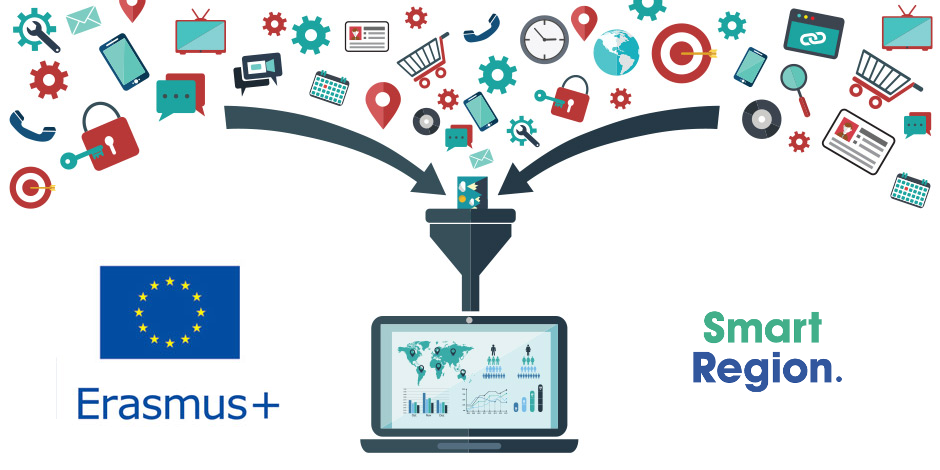Are You Ready For Smart Data?
Smart Regions are developing around the world as a way to develop successful local economies and communities. But the secret of success lies in collecting, analysing and using data in a smart way.
Collecting data
The use of data helps to understand the economic, environmental and social trends that take place in a region. But few economic actors are aware of its beneficial effects on developing local businesses. Data is often used to measure results in a traditional way that records what has happened in the past. It is less often used to influence and predict what will happen in the future.
The European Erasmus+ programme supports a Smart Data: Smart Region project, which addresses these issues as a partnership of United Kingdom, Republic of Ireland, Germany, Netherlands and Belgium organisations. The aim of the project is to provide providers with a way to prepare students for a world increasingly dependent on and driven by data. The project is unique as it addresses the role data can play in education as an essential part of the curriculum. It is focused on developing an open education resource that supports the expansion of entrepreneurship in the education sector.
Entrepreneurs are flexible in their thinking and naturally absorb and act on any information relevant to achieving their goals. The project extends such entrepreneurial practice, as it highlights the importance of adopting a similar approach in relation to the use of data. As part of the project education and economic stakeholders in each partner country have been engaged as a way to highlight the crucial role data plays in building a better economy.
Creating opportunity
It is generally accepted that the analysis of data creates opportunities to improve productivity, innovation and competitiveness. Companies skilled in the use of data make better and more informed decisions. Others struggle as they find it difficult to turn their data into smart data, which makes the business more competitive.
The project also highlights the importance of data to the education sector, as initial findings show an awareness of the role data can play but less detailed knowledge about how to teach the subject as part of the curriculum. As a result, the project has developed training materials for use in education, so data is recognised as a clear source of competitive advantage. The findings also highlight the need to develop an effective tool to support how data management is taught to students. Not least because in the future the ability to collect and analyse data will be recognised as an essential skill just as finance and marketing are today.
So, Smart Regions are developing as a way to improve local economies and communities but the successful ones will have to master the art of collecting and using data.




